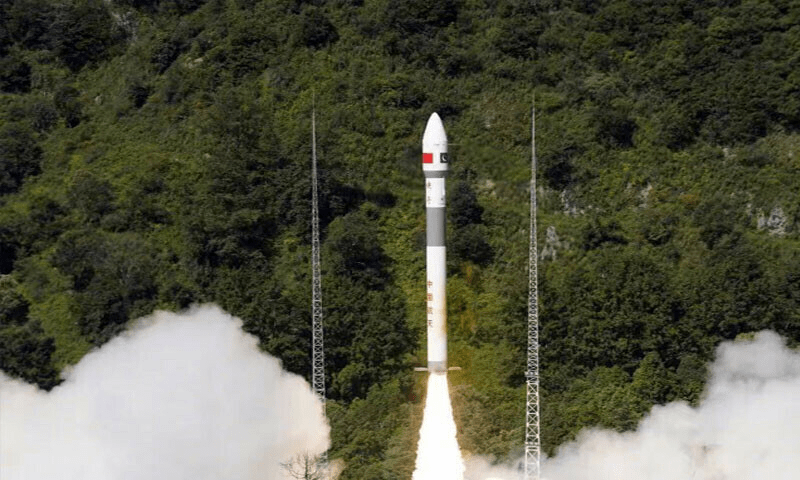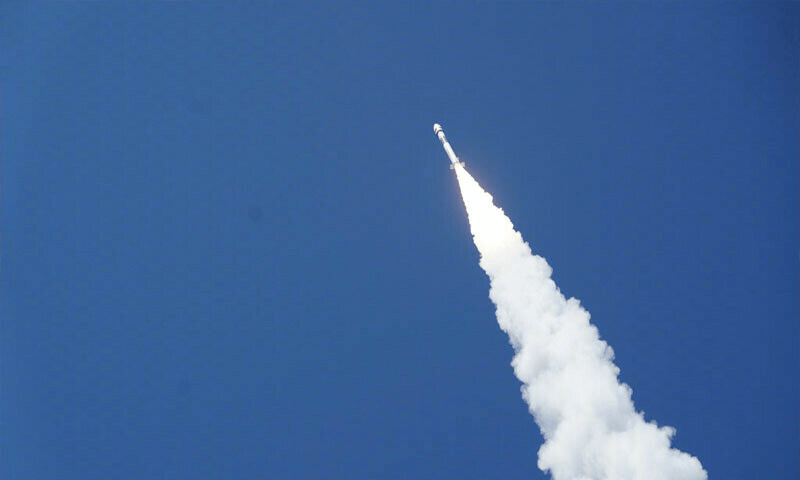Pakistan successfully launches advanced remote sensing satellite
Pakistan has achieved another major milestone in the field of space research by successfully launching its advanced remote sensing satellite (KZ-1A/PRSC-S1).
The satellite was sent into space on Thursday from the Xichang Satellite Launch Centre in China in collaboration with Pakistan’s space research organisation SUPARCO’.
The main ceremony of the satellite launch was held at the Suparco headquarters in Karachi, where this historic moment was witnessed as part of the National Space Policy and Vision 2047.
Suparco has described the project as the beginning of a new chapter in Pakistan’s space programme, a concrete step towards taking the country to the ranks of developed nations in the field of modern technology.
In this regard, the Ministry of Planning and Development, on its “X” account, described the successful launch of the fourth observation satellite as a new milestone in national science and technology.
“Today, Pakistan marks a monumental moment in our journey towards space leadership as we proudly launch our Fourth Earth Observation Satellite, a shining symbol of national innovation, strategic foresight, and global partnership.”
The new satellite has been designed for research and earth observation, and aims to improve natural disaster monitoring and early warning systems.
According to Suparco, the satellite will enable effective monitoring of factors such as floods, earthquakes, landslides, melting glaciers and deforestation.

The satellite will not only help in disaster management but will also play an important role in agricultural development, urban planning, infrastructure building and mapping of transport networks.
In addition, this satellite will also play a key role in major national projects like CPEC through monitoring environmental changes and efficient use of resources.
Suparco stated that this mission reflects Pakistan’s commitment to a peaceful space programme and strengthens the country’s resolve towards research and development in space technology.
Under Vision 2047, the country aims to become self-reliant in the field of technology, and this satellite is a major milestone in that journey.
In a parallel development, India’s space agency ISRO also launched its satellite “NISAR” from the Satish Dhawan Space Centre in Sriharikota on the same day.
The Indian satellite aims to study the ecosystem, weather patterns and natural hazards.
The successful launch of Pakistan’s remote sensing satellite is not only a significant step forward for national security and development projects, but also a promising advancement in the country’s scientific and technological future.
For the latest news, follow us on Twitter @Aaj_Urdu. We are also on Facebook, Instagram and YouTube.























Comments are closed on this story.